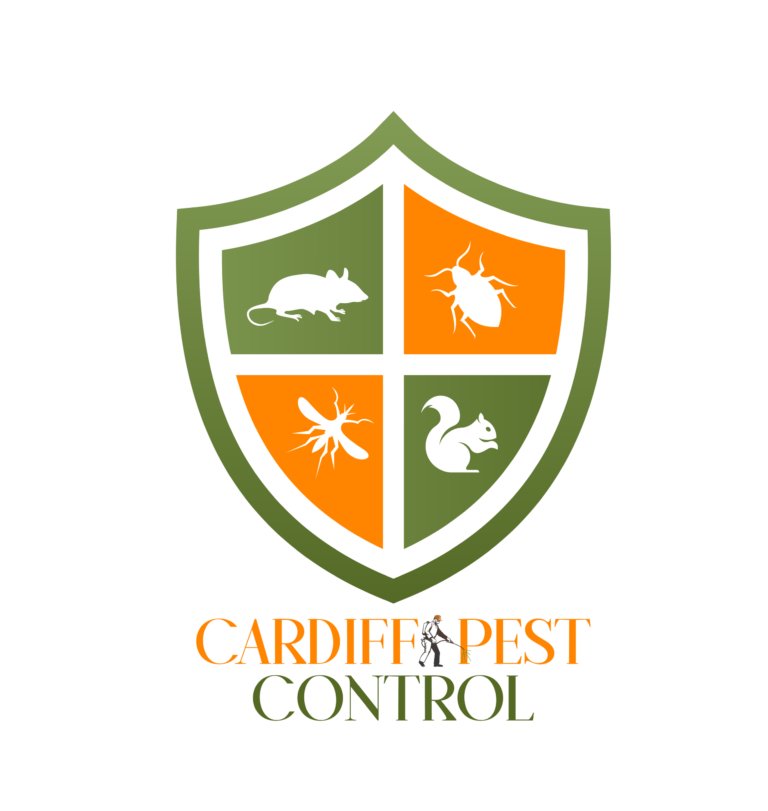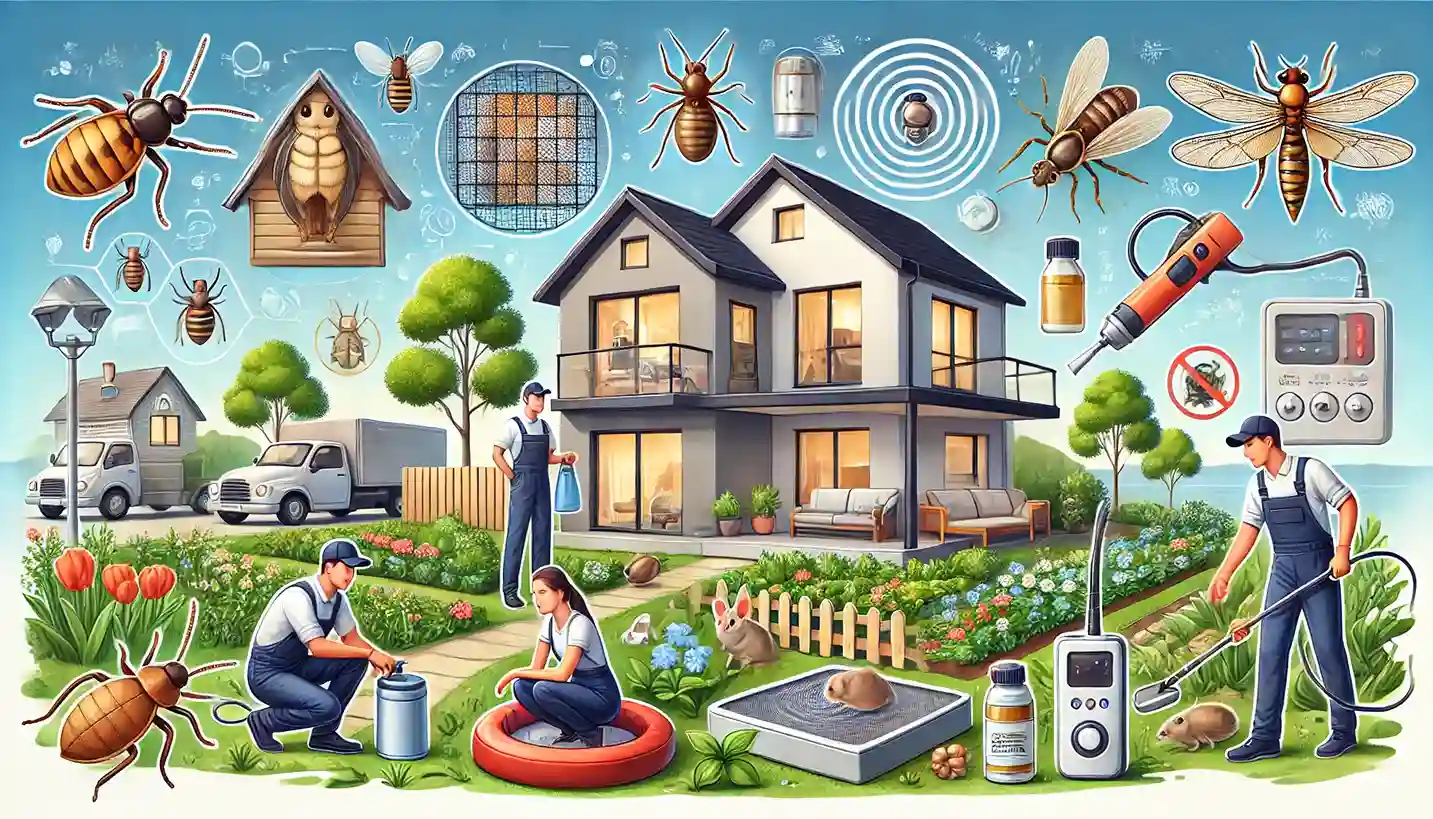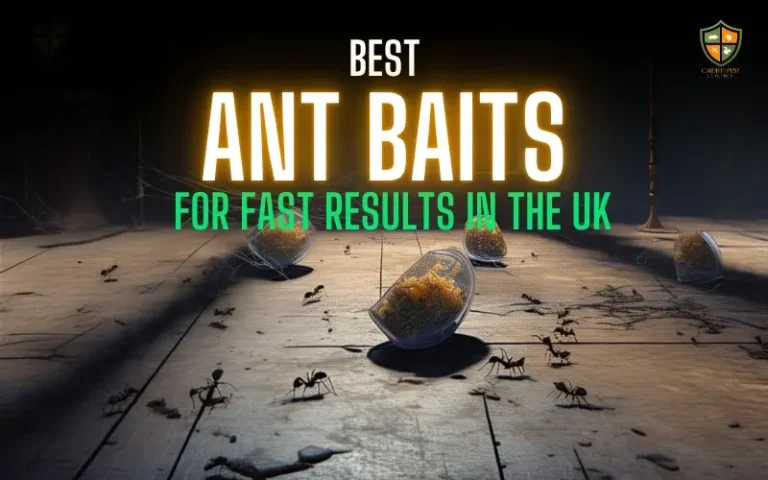Table of Contents
TogglePests can be a nightmare for homeowners, causing property damage and health risks. If you’re dealing with unwanted insects or rodents, finding the right pest control treatments is essential. Whether you’re looking for home pest control solutions or commercial pest solutions, it’s important to choose methods that provide long-lasting results.
In this guide, we’ll explore the 10 most effective pest control treatments to help you maintain a pest-free environment.
Why Pest Control Treatment is Necessary
Ignoring pests can lead to serious health and hygiene risks as they carry diseases, contaminate food, and damage property. Here are some key reasons why pest control treatments are essential:
- Prevents structural damage to your home.
- Reduces the risk of allergies and diseases.
- Protects food and other household items.
- Creates a healthy and comfortable living space.
- Enhances overall hygiene by eliminating disease-carrying pests.
- Reduces stress caused by constant pest problems.
- Ensures a better living environment for your family.
10 Most Effective Pest Control Treatments
1. Chemical Pest Control
One of the most common pest extermination methods, chemical pest control involves using pesticides to eliminate pests. These treatments come in sprays, gels, and powders. While effective, they must be handled carefully to avoid health risks. Many homeowners opt for professional services to ensure safe application. Chemicals can target various pests, including ants, cockroaches, and bed bugs. If used correctly, they offer long-term pest prevention.
2. Biological Pest Control
This eco-friendly pest management approach uses natural predators to control pests. For example, ladybugs can help reduce aphid populations, while certain fungi can target termites. Biological control is widely used in agricultural settings but can also be applied to residential areas. The goal is to introduce natural enemies to disrupt pest reproduction, reducing their population naturally over time.
3. Integrated Pest Management (IPM)
Integrated pest management (IPM) is a combination of multiple pest control treatments to manage pests effectively. It involves monitoring, prevention, and targeted treatments to minimize environmental impact. This method focuses on identifying the root cause of pest problems and implementing a multi-step approach to eliminate them. It often includes a mix of chemical pest control, habitat modification, and safe pest control methods to provide long-term protection.
4. Heat Treatment for Bed Bugs
If you’re struggling with bed bug elimination, heat treatment is one of the best solutions. This method raises the temperature in an infested area to kill bed bugs and their eggs. Since bed bugs are resistant to many pesticides, heat treatment is an effective and chemical-free alternative. It is widely used in hotels and homes where bed bug infestations are common. Professional services ensure that the heat reaches all hidden corners where bed bugs thrive.
5. Rodent Control Techniques
Rodents can cause serious property damage. Rodent control techniques include sealing entry points, using bait stations, and professional Rodents Control services. Effective rodent control begins with identifying common entry points such as cracks in walls, open vents, and poorly sealed doors. Once identified, barriers are put in place, followed by the use of humane traps or chemical baits to eliminate the rodent population.
6. Termite Treatment Options
Termites are silent destroyers that can weaken your home’s structure. Termite treatment options include liquid termiticides, baiting systems, and fumigation. Termites feed on wood, causing extensive damage over time. Early detection is key to preventing costly repairs. Professional termite inspections are recommended at least once a year, especially in areas where termite activity is common.
7. Eco-Friendly Pest Management
For those who prefer non-toxic methods, eco-friendly pest management uses plant-based repellents and essential oils to deter pests. Homeowners often use vinegar, citrus oils, and diatomaceous earth as natural alternatives. These methods work best for minor pest issues but may need frequent application. Many pest control companies offer green solutions that are safe for pets and children.
8. Commercial Pest Solutions
Businesses need specialized commercial pest solutions to comply with health regulations. Pest control services for restaurants, hotels, and offices help keep businesses pest-free. A pest infestation in a commercial setting can lead to health violations and loss of customer trust. Routine inspections, sanitation improvements, and professional extermination services ensure a pest-free workplace.
9. Home Pest Control Solutions
From DIY solutions to professional treatments, home pest control solutions include sprays, exclusion techniques, and regular inspections. Many homeowners opt for preventive measures such as sealing cracks, maintaining cleanliness, and removing standing water. Keeping your home clutter-free reduces hiding spots for pests and prevents their spread.
10. Safe Pest Control Methods
For households with kids and pets, safe pest control methods such as non-toxic baits and ultrasonic repellents are great alternatives. These solutions avoid harsh chemicals and rely on natural deterrents. Many ultrasonic devices claim to repel pests by emitting high-frequency sound waves, although effectiveness varies. Consulting a professional can help determine the best approach for your situation.,
How to Get Rid of Household Pests
Pests can be persistent, but effective pest control treatments will help you get rid of household pests for good. Start with regular cleaning, sealing cracks, and removing food sources. Professional pest control services can help tackle severe problems by providing targeted treatments that eliminate pests and prevent their return.
The Importance of Regular Pest Control
One of the best ways to prevent infestations is through regular pest control. Scheduling routine pest inspections and treatments helps keep pests away before they become a problem. Homeowners and businesses should have a maintenance plan in place to ensure long-term protection.
How to Choose the Right Pest Control Treatment
Choosing the best pest control treatments depends on several factors:
- Type of pest: Different pests require different treatments.
- Severity of infestation: Mild infestations may be handled with DIY methods, while severe cases need professionals.
- Budget: Some treatments are more cost-effective than others.
- Safety concerns: If you have children or pets, opt for non-toxic pest treatments.
- Property size: Larger areas may require multiple treatments or ongoing maintenance.
- Long-term effectiveness: Some methods provide temporary relief, while others offer permanent solutions.
For severe infestations, it’s best to opt for Professional Pest Removal services like Cardiff Pest Control for effective and long-term results.
Conclusion
Pests can disrupt your home, damage property, and pose serious health risks. The right pest control treatments ensure a safe, comfortable, and hygienic living environment. Whether you opt for chemical pest control, integrated pest management (IPM), or non-toxic pest treatments, early intervention is key to stopping pests before they cause severe damage.
Ignoring a pest problem can lead to costly repairs, contamination, and an unhealthy home. Regular pest inspections, preventive measures, and professional pest control services help maintain a long-term pest-free space. By understanding various pest extermination methods, homeowners can choose the most effective approach based on their needs.
For expert help, contact Cardiff Pest Control for reliable and effective pest extermination methods.
FAQs
What is the most effective pest control treatment for homes?
The most effective pest control treatment depends on the type of pest. Chemical pest control, heat treatment, and integrated pest management (IPM) are commonly used for long-term pest prevention.
How often should I schedule pest control treatments?
It is recommended to schedule regular pest control treatments every 3 to 6 months to prevent infestations and maintain a pest-free home.
Are eco-friendly pest management methods effective?
Yes, eco-friendly pest management methods like essential oils, natural predators, and non-toxic baits can help control pests, but they may require more frequent applications.
What are the signs that I need professional pest control services?
Signs include recurring pest activity, structural damage, droppings, foul odors, and strange noises in walls or ceilings, indicating the need for professional pest removal.
Can I do pest control treatments myself, or should I hire a professional?
DIY methods work for minor pest problems, but home pest control solutions performed by professionals ensure long-lasting protection and safe application of treatments.







